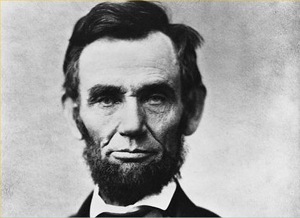| Home | Blog | Ask This | Showcase | Commentary | Comments | About Us | Contributors | Contact Us |

Some remedies for the Supreme Court power grabCOMMENTARY | January 26, 2010It’s easy to find activism, impossible to find original intent behind the Roberts/Scalia group’s ruling on corporate political spending. Martin Lobel suggests six sharp, practical steps to deal with it. By Martin Lobel The media need to focus public attention on the judicial legislating by the five “conservative” Justices of the U.S. Supreme Court in deciding Citizens United v. Federal Election Commission. They ruled that corporations have a right to spend as much money as they want to buy ads to support or oppose politicians – a question that the litigants weren’t arguing but that the Justices reached out to decide.
Justices Kennedy, Scalia, Roberts, Thomas and Alito divined that that was the original intent of the drafters of our Constitution even though Jefferson had warned against just such concentrations of power and they ignored Chief Justice John Marshall’s opinion in Bank of the United States v. Deveaux when he referred to a corporation as an “invisible, intangible and artificial being” and “certainly not a citizen.” Apparently they believe that they know better what the drafters of the Constitution meant than Chief Justice Marshall who actually knew the drafters. The only rational conclusion to draw from this action is that “original intent” is merely a subterfuge to justify whatever action Scalia and his followers want to take.
The five “conservative” Justices had no problem substituting their opinion for the carefully balanced Congressional legislation to curb the power of money in elections. Under the now stricken McCain-Feingold legislation, corporations could spend money that was “ voluntarily” contributed to Political Action Committees (PACs) or to overpaid lobbyists who in turn would contribute or bundle contributions to candidates. Whether such contributions were really voluntary or not is open to question, but at least it gave economically powerful interests a means to influence elections without the appearance of a quid pro quo that direct expenditures entail. Apparently, even though the Justices don’t run for office, they felt they were more expert in deciding what influence money has on elections than those who do.
There is another interesting, and I hope unintended consequence, of the decision. Foreign corporations can now influence American politics directly by spending unlimited amounts of money. I can just see the memo now from an American subsidiary of a Chinese corporation to its home office:
“Dear Chairman, The United States Supreme Court has just decided we can directly influence their elections with our money. Please send me $100 million of the US Treasury Bonds we own so we can defeat those politicians who stand in our way of taking over the US economy.”
As long as those five supposedly conservative Justices are there, we are likely to see even more judicial activism and legislating, contrary to the judicial philosophy Chief Justice Roberts espoused at his confirmation hearings. It will be interesting to see what the Court will do with a case seeking to prohibit the publishing of the names of those petitioners opposed to gay marriage on the grounds they might be subject to ridicule or harassment. Will the same First Amendment rights so precious to corporations be struck down when it comes to revealing who signed a petition seeking a referendum opposing gay rights?
Congress still has remedies to protect the country from abusive corporate political spending. Here are several of them:
If any member of the Court voted to strike down such clearly constitutional restrictions on corporate spending, it would then be time to discuss impeachment for subverting the Constitution.
We should remember what Abraham Lincoln wrote in 1864:
We may congratulate ourselves that this cruel war is nearing its end. It has cost a vast amount of treasure and blood. . . . It has indeed been a trying hour for the Republic; but I see in the near future a crisis approaching that unnerves me and causes me to tremble for the safety of my country. As a result of the war, corporations have been enthroned and an era of corruption in high places will follow, and the money power of the country will endeavor to prolong its reign by working upon the prejudices of the people until all wealth is aggregated in a few hands and the Republic is destroyed. I feel at this moment more anxiety for the safety of my country than ever before, even in the midst of war. God grant that my suspicions may prove groundless."
The passage appears in a letter from Pres. Abraham Lincoln to (Col.) William F. Elkins, Nov. 21, 1864.
|
||||||||||||




